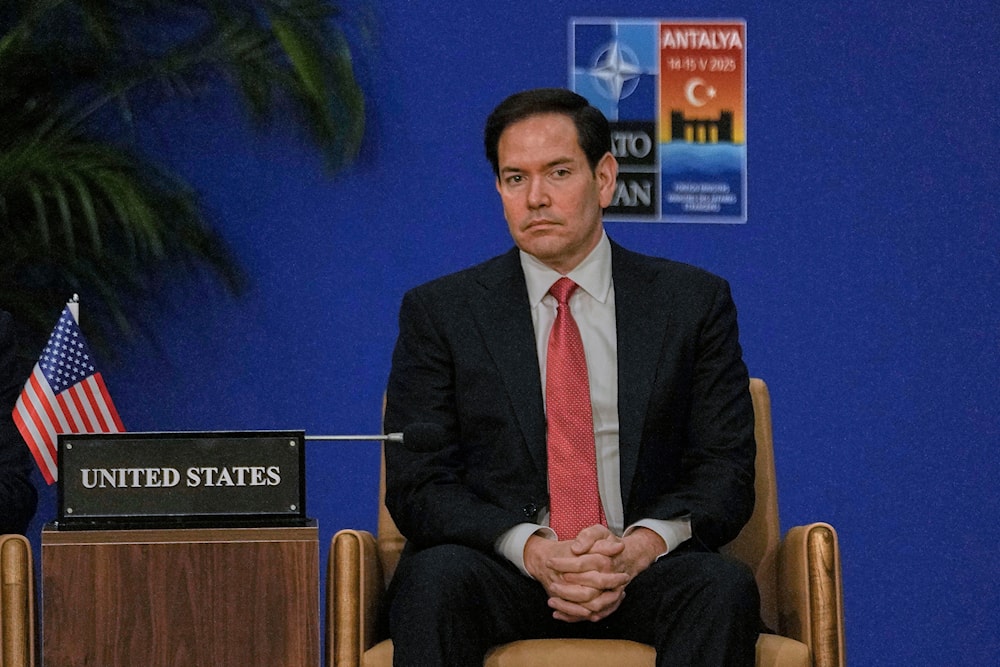US to ease Syria sanctions, offer 180-day waivers: Rubio
The United States is working with Congress to slowly overturn 2019 sanctions on Syria, starting with 180-day waivers to facilitate humanitarian aid, says Secretary of State Marco Rubio.
-

US Secretary of State Marco Rubio listens to speeches during a NATO's informal meeting of foreign ministers in Antalya, southern Turkey, Thursday, May 15, 2025. (AP)
The United States plans to collaborate with Congress to slowly overturn the 2019 sanctions legislation targeting Syria, and in the meantime, it is implementing 180-day waivers to ease the delivery of humanitarian aid into the country.
"Ultimately, if we make enough progress, we'd like to see the law [the Caesar Act] repealed. We're not there yet. That's premature," US Secretary of State Marco Rubio said on Thursday in Turkey, adding that, "I think we want to start with the initial [180-day] waiver, which will allow foreign partners, who wanted to flow in aid, to begin to do so without running the risk of sanctions."
"I think as we make progress, hopefully we'll be in a position sooner, one day, to go to Congress and ask them to permanently remove the sanctions," Rubio highlighted.
US Secretary of State Marco Rubio also highlighted that Syria now faces a choice between pursuing a "major transformation" in the region or risking a "brutal civil war" that could destabilize the Middle East, while emphasizing that the United States favors the first option.
"There are two routes here. One will be success, and we will have a major transformation in the region, or you are going to have a brutal civil war that will destabilize the region. We would prefer the former, not the latter," Rubio said, talking to reporters in Antalya.
Trump lifts sanctions on Syria in Saudi Arabia
On Tuesday, US President Donald Trump, during his visit to Saudi Arabia, publicly announced that the United States would lift sanctions on Syria, a decision made at the request of Saudi Crown Prince Mohammed bin Salman.
This announcement came just before the US-Gulf summit held in Riyadh, signaling a shift in US policy toward Syria and the broader Middle East. Trump had previously expressed concerns over the lack of progress in Syria's peace process, but this move is seen as a step toward facilitating dialogue and improving regional stability.
Trump’s talks with Syria’s interim President, Ahmad al-Sharaa, prior to the summit, marked a critical moment in US-Syria relations. The discussions focused on Syria’s future and the importance of international cooperation in rebuilding the country. With the backing of Saudi Arabia, one of the most influential countries in the region, this move could help bring Syria back into the fold of regional politics, after years of isolation.
According to Time magazine, the sanctions to be lifted, some of which have been in place since 1979, have included measures such as freezing Syrian assets, banning petroleum imports, and isolating the country from the global economy.
However, certain restrictions, particularly those under the Caesar Syria Civilian Protection Act, remain in place and will require Congressional approval to be fully lifted, according to Time.

 3 Min Read
3 Min Read










